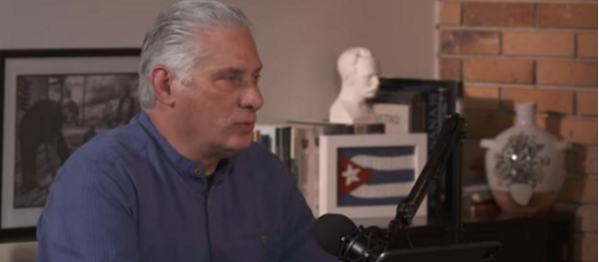
Havana, July 4 (RHC)-- The First Secretary of the Central Committee of the Communist Party of Cuba (PCC) and President of the Republic, Miguel Díaz-Canel, addressed this Thursday realities and experiences accumulated by that political organization and the Government of the island in tours that he leads to evaluate local development programs in the municipalities.
In a new installment of the podcast 'From the Presidency', hosted by the president, under the question: What happens during visits to the municipalities? the president and his guests on that panel explained the characteristics of visits and the close link with the people.
In this sense, Díaz-Canel exemplified that since January 2024 they carried out 76 visits to 73 municipalities, covering 195 Popular Councils (electoral districts), 986 work centers, in which they spoke with more than 180 thousand people.
There they will “handle the problems,” said the head of state, who described to the presidential press journalists, Arleen Rodríguez and Alina Perera, the scenarios that are evaluated during the tours.
He explained that they talk with people in their workplaces, and production and service structures, and with the population who spontaneously attend the meeting with the delegation, made up of the Secretary of Organization of the PCC, Roberto Morales, and work teams.
The Cuban president listed among the central themes of the tours: agricultural production, high food prices, as well as social problems related to childhood and adolescence, youth and people in vulnerable conditions.
He said that government and party teams analyze the performance of state companies and non-state forms of management, as well as the necessary link between both actors in the economy.
“The process of banking on the island, the organization of internal trade, the improvement in salaries, the quality of service provision, and the functioning of mass organizations, occupy the work agenda in the presidential tours,” he noted. (Source: Prensa Latina)

